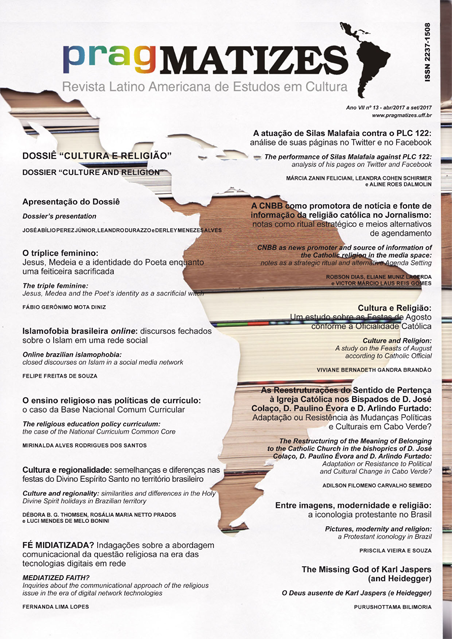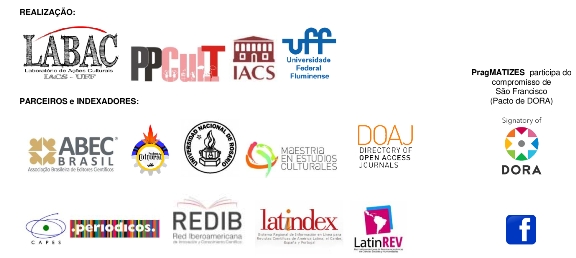The Missing God of Karl Jaspers (and Heidegger)
DOI:
https://doi.org/10.22409/pragmatizes.v0i13.10467Resumo
The paper is a cross-cultural critique on how God is conceived in the works of two Existentialist Philosophers: Karl Jaspers and Heidegger (their convergence and divergences), and how we might disconceive both.
And there is reference via Jaspers to Faith (since I am a Fellow of the College of the All Souls of the Faithful Departed, in Oxford), I am interested in this issue: both in respect of faith, the departed, and perhaps the yet-to-be, posthuman and postdivine.
Downloads
Referências
BILIMORIA, Purushottama. Hindu doubts about God: towards a Mīmāṃsā Deconstrution. International Philosophical Quartely, 30, 1990, p. 481-499.
BILIMORIA, Purushottama. Nyāya and Navya- Nyāya. In: Brill Encyclopedia of Hinduism, vol. III, edited by K. Jacobsen et al. P. 657-671. Leiden: E. J. VBrill, 2011.
CHADHA, Monima; TRAKAKIS, Nick. Karma and the Problem of Evil: A Response to Kaufman. Philosophy East and West, 57, no. 4, 2007, p. 533-556.
CHATTERJEE, M. Some Indian Strands of Thought Relating to the Problem of Evil. In: Relativism, Suiffering and Beyond Essays In Memory of Bimal Matilal, edited by J. N. Mohanty and P. Bilimoria, p. 319-335. Delhi: Oxford University Press, 1997.
DOOLAN, Gregory T. (editor). The Science of being as being: Metaphysical Investigations. Washington D. C. (USA): The Catholic University of America Press, 2012.
HICKS, Douglas A. Religion and the workplace: Pluralism, Spirituality, Leadership. Cambridge (UK): University Press, 2003.
KAUFMAN, Whitley R. P. Karma, Rebirth, and the Problem of Evil. Philosophy East and West, 55, no. 1, 2005, p. 15-32.
KIESEL, Theodore. The Genesis of Heidegger’s Being and Time, California: University Press, 1995.
TAYLOR, Mark C. After God. Chicago and London: The University of Chicago Press, 2007.
Downloads
Publicado
Edição
Seção
Licença
Autores que publicam nesta revista concordam com os seguintes termos:- Autores mantém os direitos autorais e concedem à revista o direito de propriedade, com o trabalho simultaneamente licenciado sob a Licença Creative Commons Attribution que permite o compartilhamento do trabalho com reconhecimento da autoria e publicação inicial nesta revista.
- A revista se reserva o direito de efetuar, nos originais, alterações de ordem normativa, ortográfica e gramatical.
- As provas finais não serão submetidas aos autores.
- As opiniçoes emitidas pelos autores são de sua exclusiva responsabilidade.



